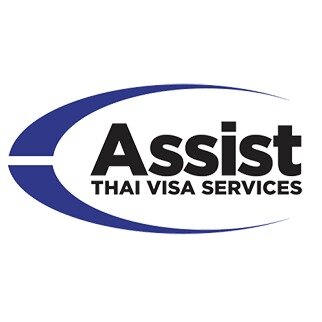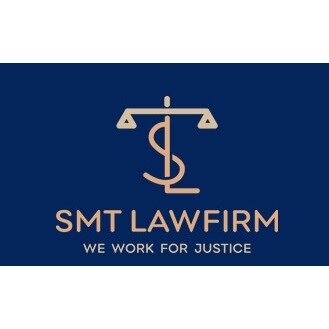ทนายความ ทรัพยากรธรรมชาติ ที่ดีที่สุดใน เชียงใหม่
แบ่งปันความต้องการของคุณกับเรา รับการติดต่อจากสำนักงานกฎหมาย
ฟรี ใช้เวลา 2 นาที
รายชื่อทนายความที่ดีที่สุดใน เชียงใหม่, ประเทศไทย
คู่มือกฎหมายเขียนโดย SIAM LEGAL INTERNATIONAL:
- Defamation Laws in Thailand: Criminal Charges and Civil Suits
- The State of Thailand’s Long-Term Resident (LTR) Visa Program in 2025
- The Penalties Of Not Filing Your Income Tax Return As A Foreigner In Thailand
1. เกี่ยวกับกฎหมายทรัพยากรธรรมชาติในเชียงใหม่, ประเทศไทย
เชียงใหม่มีทรัพยากรธรรมชาติที่สำคัญ คือ ป่า พื้นที่ลุ่มน้ำ และสัตว์ป่าที่ได้รับความคุ้มครองตามกฎหมายระดับชาติและท้องถิ่น กฎหมายหลักมุ่งปกป้องทรัพยากรเหล่านี้และกำกับการใช้งานอย่างเข้มงวด เพื่อป้องกันการทำลายสิ่งแวดล้อมและผลกระทบต่อชุมชนท้องถิ่น
กฎหมายสำคัญที่บังคับใช้อย่างแพร่หลายในเชียงใหม่ประกอบด้วย พระราชบัญญัติคุ้มครองคุณภาพสิ่งแวดล้อม พ.ศ. 2535, พระราชบัญญัติป่าไม้ พ.ศ. 2484 และ พระราชบัญญัตุอทยานแห่งชาติ พ.ศ. 2504 ซึ่งนำไปสู่การออกใบอนุญาต ควบคุมการใช้งาน และกำหนดเงื่อนไขทางด้านสิ่งแวดล้อม
หน่วยงานหลักที่ดูแลการบังคับใช้ในเชียงใหม่ ได้แก่ กระทรวงทรัพยากรธรรมชาติและสิ่งแวดล้อม (MONRE) รองรับการกำกับดูแลโดยกรมอุทยานแห่งชาติ สัตว์ป่า และพันธุ์พืช (DNP) และกรมทรัพยากรน้ำบาดาล/กรมทรัพยากรน้ำ เพื่อการบริหารทรัพยากรน้ำและดินอย่างยั่งยืน
ข้อมูลอ้างอิงสำคัญ ได้แก่ เอกสารนโยบายและคำแนะนำจาก กระทรวงทรัพยากรธรรมชาติและสิ่งแวดล้อม (MONRE) และ กรมอุทยานแห่งชาติ สัตว์ป่า และพันธุ์พืช (DNP)
เพิ่มเติมดูได้จากราชกิจจานุเบกษาและประกาศที่เกี่ยวข้องในเว็บไซต์ทางการรัฐ ราชกิจจานุเบกษา
2. ทำไมคุณอาจต้องการทนายความ
- กรณีพิพาทที่ดินในพื้นที่ป่า หรือเขตอุทยานใกล้เมืองเชียงใหม่ เช่น เข้ากลุ่มป่าสงวนหรือป่าสำคัญในอำเภอแม่ริม แม่แตง หรือฮอด
- กรณีขออนุญาตดำเนินกิจกรรมในพื้นที่อนุรักษ์ เช่น รีสอร์ท โรงแรม หรือโครงการพัฒนาในลุ่มน้ำที่อยู่ในเขตรักษาพันธุ์
- ข้อพิพาทกับชุมชนท้องถิ่นเรื่องสิทธิ์ใช้ประโยชน์ทรัพยากรหรือข้อพิพาทกับเจ้าหน้าที่ในการออกใบอนุญาต
- กรณีมีคำสั่งหรือการระงับการดำเนินการจาก DNP หรือองค์บริหารที่เกี่ยวข้อง และต้องอุทธรณ์/ปรับคำสั่ง
- ข้อพิพาทด้านสิ่งแวดล้อมที่เกี่ยวข้องกับการประเมินผลกระทบสิ่งแวดล้อม (EIA) หรือกระบวนการคัดกรองสิ่งแวดล้อมในพื้นที่เชียงใหม่
- การซื้อขายหรือโอนกรรมสิทธิ์ในที่ดินที่มีสถานะป่าไม้หรือพื้นที่อนุรักษ์
3. ภาพรวมกฎหมายท้องถิ่น
กฎหมายทรัพยากรธรรมชาติในเชียงใหม่ส่วนใหญ่ทำงานร่วมกับกฎหมายระดับชาติ และมีการบังคับผ่านหน่วยงานพัฒนาพื้นที่และจังหวัด การใช้งานรวมถึงการออกใบอนุญาต การตรวจสอบ และการบังคับใช้ที่ประสานงานระหว่าง MONRE และ DNP
กฎหมายที่มีบทบาทสำคัญทุกระดับ ได้แก่
- พระราชบัญญัติคุ้มครองคุณภาพสิ่งแวดล้อม พ.ศ. 2535 - กำหนดกรอบการประเมินผลกระทบสิ่งแวดล้อม การควบคุมมลพิษ และการติดตามคุณภาพสิ่งแวดล้อมทั่วประเทศ
- พระราชบัญญัติป่าไม้ พ.ศ. 2484 - ควบคุมการครอบครอง เข้าป่าสงวน และการใช้งานพื้นที่ป่าในทุกจังหวัดรวมถึงเชียงใหม่
- พระราชบัญญัตุอทยานแห่งชาติ พ.ศ. 2504 - กำกับดูแลพื้นที่อุทยานแห่งชาติ พื้นที่คุ้มครอง และการบริหารทรัพยากรในพื้นที่นี้
การเปลี่ยนแปลงล่าสุดและแนวทางการบังคับใช้อยู่ในระหว่างการปรับปรุงโดย MONRE และ DNP เพื่อเพิ่มความชัดเจนในการอนุมัติใบอนุญาตและการคุ้มครองพื้นที่สำคัญในภาคเหนือ
4. คำถามที่พบบ่อย
อะไรคือทรัพยากรธรรมชาติที่ครอบคลุมในเชียงใหม่?
ทรัพยากรธรรมชาติรวมถึงป่า พื้นที่ลุ่มน้ำ และสัตว์ป่ที่ได้รับการคุ้มครอง ตามกฎหมายระดับชาติและท้องถิ่น การใช้งานต้องสอดคล้องกับใบอนุญาตและข้อกำหนด
อย่างไรจะตรวจสอบว่ากิจกรรมของฉันต้องมีใบอนุญาตสิ่งแวดล้อมหรือไม่?
คุณต้องประเมินความเสี่ยงด้านสิ่งแวดล้อมและดูว่าโครงการเข้าข่าย EIA หรือไม่ โดยทั่วไปหากกระทบคุณภาพสิ่งแวดล้อม จะต้องมีการประเมินและใบอนุญาตที่เกี่ยวข้อง
เมื่อไหร่ต้องยื่นขออนุญาตจากหน่วยงานทรัพยากรธรรมชาติ?
เมื่อกิจกรรมของคุณมีผลต่อป่า พื้นที่อนุรักษ์ หรือการใช้น้ำและดินในเชิงก่อสร้าง การยื่นขอใบอนุญาตควรทำก่อนเริ่มดำเนินการ
ที่ไหนฉันจะยื่นขอใบอนุญาตหรือยื่นคำร้อง?
คำร้องยื่นต่อหน่วยงานที่มีอำนาจในพื้นที่ เช่น กรมอุทยานแห่งชาติ สัตว์ป่า และพันธุ์พืช หรือหน่วยงานทรัพยากรธรรมชาติและสิ่งแวดล้อมจังหวัดเชียงใหม่ สถานที่ยื่นขึ้นกับประเภทของใบอนุญาต
ทำไมค่าใช้จ่ายในการยื่นคำร้องสูงถึงหลักหมื่นหรือมากกว่านั้น?
ค่าใช้จ่ายรวมถึงค่าธรรมเนียมใบอนุญาต ค่าใช้จ่ายด้านการประเมินผลกระทบสิ่งแวดล้อม และค่าธรรมเนียมอื่นๆ ที่เกี่ยวข้องกับกระบวนการตรวจสอบ
ระยะเวลาในการขอใบอนุญาตทั่วไปนานแค่ไหน?
ระยะเวลาขึ้นกับประเภทใบอนุญาต และความซับซ้อนของโครงการ โดยทั่วไปอาจใช้จากไม่กี่สัปดาห์ถึงหลายเดือน
ฉันต้องมีคุณสมบัติอะไรบ้างในการยื่นคำร้อง?
คุณควรมีเอกสารระบุตัวตน เอกสารสิทธิครอบครองที่ดิน/พื้นที่ และแผนโครงการ รายละเอียดยืนยันการมีสิทธิใช้งานที่เกี่ยวข้องกับทรัพยากร
ความแตกต่างระหว่างใบอนุญาตป่าไม้กับใบอนุญาตพื้นที่อนุรักษ์คืออะไร?
ใบอนุญาตป่าไม้ควบคุมการครอบครอง การบุกรุก และการใช้พื้นที่ป่ ส่วนใบอนุญาตพื้นที่อนุรักษ์เกี่ยวข้องกับการดำเนินกิจกรรมในเขตพื้นที่คุ้มครองและอุทยาน
รูปแบบการยื่นคำร้องเป็นแบบใด?
ส่วนใหญ่สามารถยื่นได้ทั้งออนไลน์ผ่านระบบของหน่วยงานรัฐหรือแบบกระดาษตามที่ระบุ แต่การยื่นออนไลน์อาจสะดวกกว่าในเชียงใหม่
หากมีข้อพิพาทกับเจ้าหน้าที่หรือชุมชนจะทำอย่างไร?
ควรปรึกษาทนายความด้านทรัพยากรธรรมชาติ เพื่อหารือแนวทางอุทธรณ์ หรือการเจรจาเพื่อหาข้อยุติ โดยมีการบันทึกหลักฐานการสื่อสารและเอกสารที่เกี่ยวข้อง
การอุทธรณ์คำสั่งของ DNP ต้องทำอย่างไร?
คุณต้องยื่นคำร้องอุทธรณ์ต่อตัวบทที่เกี่ยวข้องภายในระยะเวลาที่กำหนด พร้อมหลักฐานและเหตุผลชัดเจน เพื่อให้มีการทบทวนโดยผู้มีอำนาจ
มีการเปลี่ยนแปลงกฎหมายทรัพยากรธรรมชาติล่าสุดที่มีผลต่อเชียงใหม่ไหม?
กฎหมายหลักยังคงยึดแนวทางเดิม แต่มีการปรับปรุงระเบียบและแนวปฏิบัติในการประเมินผลกระทบสิ่งแวดล้อม และการบูรณาการข้อมูลระหว่างหน่วยงานในช่วงไม่กี่ปีที่ผ่านมา
5. ทรัพยากรเพิ่มเติม
- กระทรวงทรัพยากรธรรมชาติและสิ่งแวดล้อม - เว็บไซต์ทางการ: mnre.go.th
- กรมอุทยานแห่งชาติ สัตว์ป่า และพันธุ์พืช - เว็บไซต์ทางการ: dnp.go.th
- ราชกิจจานุเบกษา - เว็บไซต์ทางการสำหรับกฎหมายและพระราชกฤษฎีกา: ratchakitcha.soc.go.th
6. ขั้นตอนถัดไป
- ระบุปัญหาการใช้งานทรัพยากรธรรมชาติให้ชัดเจน พร้อมพื้นที่เป้าหมายในเชียงใหม่
- ค้นหาทนายความด้านทรัพยากรธรรมชาติที่มีผลงานในเชียงใหม่และใกล้เคียง
- ตรวจสอบประวัติความเชี่ยวชาญ ความสำเร็จ และค่าใช้จ่ายเบื้องต้น
- นัดปรึกษาเบื้องต้นเพื่อประเมินสถานการณ์และทางเลือกทางกฎหมาย
- รวบรวมเอกสารที่เกี่ยวข้อง เช่น โฉนด สัญญา เชิงพื้นที่ และรูปถ่ายพื้นที่
- ขอประมาณค่าใช้จ่ายและระยะเวลาการดำเนินคดีหรือการยื่นใบอนุญาต
- เซ็นสัญญาและเริ่มดำเนินการตามแผนที่ตกลงกันไว้
Lawzana ช่วยคุณค้นหาทนายความและสำนักงานกฎหมายที่ดีที่สุด ใน เชียงใหม่ ผ่านรายชื่อผู้เชี่ยวชาญด้านกฎหมายที่มีคุณสมบัติเหมาะสมที่คัดสรรและตรวจสอบล่วงหน้า แพลตฟอร์มของเรานำเสนอการจัดอันดับและโปรไฟล์โดยละเอียดของทนายความและสำนักงานกฎหมาย ช่วยให้คุณเปรียบเทียบตามสาขากฎหมาย รวมถึง ทรัพยากรธรรมชาติ ประสบการณ์ และความคิดเห็นของลูกค้า
แต่ละโปรไฟล์ประกอบด้วยคำอธิบายเกี่ยวกับสาขากฎหมายของสำนักงาน รีวิวจากลูกค้า สมาชิกในทีมและหุ้นส่วน ปีที่ก่อตั้ง ภาษาที่พูด ที่ตั้งสำนักงาน ข้อมูลการติดต่อ การมีตัวตนบนโซเชียลมีเดีย และบทความหรือแหล่งข้อมูลที่เผยแพร่ สำนักงานส่วนใหญ่บนแพลตฟอร์มของเราพูดภาษาอังกฤษและมีประสบการณ์ทั้งในเรื่องกฎหมายท้องถิ่นและระหว่างประเทศ
ขอใบเสนอราคาจากสำนักงานกฎหมายชั้นนำ ใน เชียงใหม่, ประเทศไทย — รวดเร็ว ปลอดภัย และไม่ยุ่งยาก
ข้อจำกัดความรับผิดชอบ:
ข้อมูลที่ให้ไว้ในหน้านี้มีวัตถุประสงค์เพื่อเป็นข้อมูลทั่วไปเท่านั้นและไม่ถือเป็นคำแนะนำทางกฎหมาย แม้ว่าเราจะพยายามตรวจสอบความถูกต้องและความเกี่ยวข้องของเนื้อหา แต่ข้อมูลทางกฎหมายอาจเปลี่ยนแปลงได้ตามกาลเวลา และการตีความกฎหมายอาจแตกต่างกันไป คุณควรปรึกษาผู้เชี่ยวชาญด้านกฎหมายที่มีคุณสมบัติเหมาะสมเพื่อขอคำแนะนำเฉพาะสำหรับสถานการณ์ของคุณเสมอ
เราปฏิเสธความรับผิดทั้งหมดสำหรับการกระทำที่ทำหรือไม่ทำตามเนื้อหาในหน้านี้ หากคุณเชื่อว่าข้อมูลใดไม่ถูกต้องหรือล้าสมัย โปรด contact us และเราจะตรวจสอบและแก้ไขตามความเหมาะสม





![Legal & Business Consultancy in Chiang Mai [LBC CHIANGMAI]](https://lawzana.com/storage/firms/2674/16209701614886.jpg)










